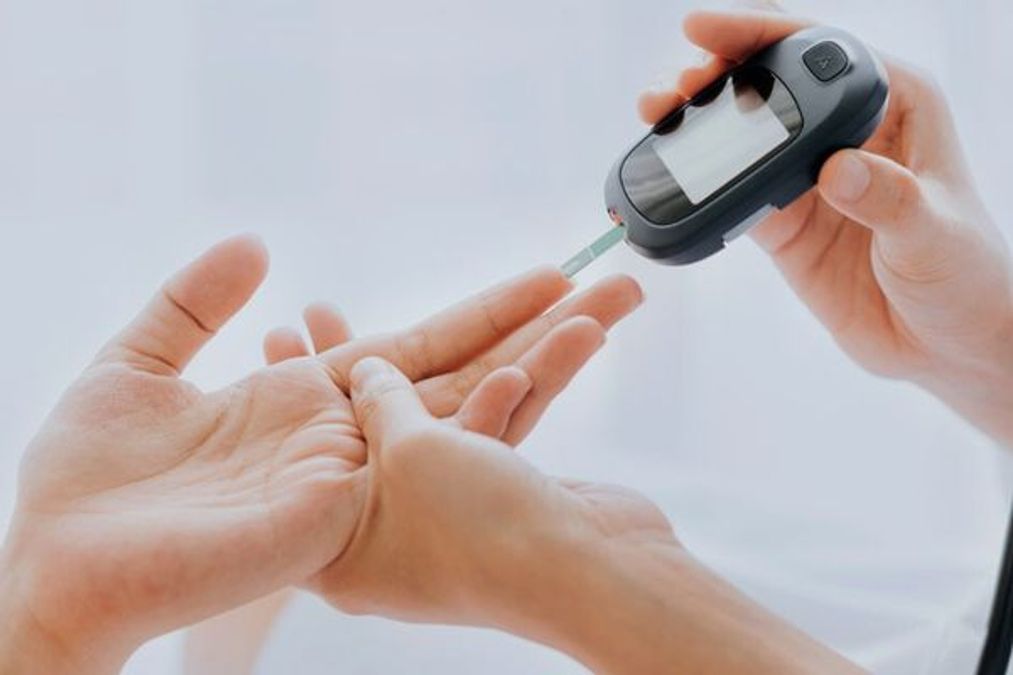Congenital disorders
World Diabetes Day: Impact On Women And Distinctive Symptoms
While diabetic symptoms largely mirror each other in men and women, the complications exhibit gender-specific nuances. Research indicates that women with diabetes face a 13% higher risk of all-cause mortality compared to their male counterparts. On the occasion of World Diabetes Day, SheThePeople explores the complexities of diabetes through the eyes of experts and resilient women who have faced its challenges head-on.
In an exclusive interview with Dr Sudeshna Ray, a renowned gynaecologist, and personal accounts from individuals who have experienced diabetes, we unravel the multifaceted nature of this condition.
Types of Diabetes
Type 1 Diabetes
Type 2 Diabetes
Gestational Diabetes
Arising during pregnancy, gestational diabetes poses additional challenges. It demands special attention due to its potential impact on both the mother and the unborn child.
Gender Disparities in Diabetes
Cardiovascular disease-related deaths are 30% more prevalent, with a staggering 58% increased risk of coronary heart disease. Men may contend with issues like muscle mass loss and genital thrush, whereas women face challenges such as genital yeast infections, urinary tract infections, and polycystic ovary syndrome. Importantly, the severity of complications differs significantly between genders.
Diabetes in Men
For men, complications may include amputation, neuropathy, retinopathy, cardiovascular disease, and the particularly prevalent erectile dysfunction, affecting 45% of diabetic males due to nerve, muscle, and blood vessel damage. Diabetes in Women
Contrastingly, women grapple with a higher likelihood of heart disease, kidney disease, and depression. The intersection of menopause and diabetes introduces additional complexities, contributing to elevated blood glucose, weight gain, and sleep-related issues. Dr Sudeshna highlights diabetes is the most common endocrinological syndrome in India and it not limit affects women’s general health but also their reproductive health, at various stages of their life, it can impact puberty, young adulthood, pregnancy as well as about menopause.
Unique Symptoms in Women
While men and women with diabetes may share common symptoms, some are distinctive to women. Understanding these signs is crucial for early identification and intervention.
Candida Infections
Hyperglycemia can lead to Candida fungus overgrowth, causing vaginal or oral yeast infections. Recognising symptoms such as itching, discharge, and soreness is essential.
Urinary Tract Infections (UTIs)
Vaginal Dryness
Diabetic neuropathy, a consequence of high blood sugar, may lead to tingling and loss of sensation, including vaginal dryness.
Polycystic Ovary Syndrome (PCOS)
Diabetes and Pregnancy
Managing diabetes during pregnancy is critical for both maternal and fetal well-being. High blood sugar levels can lead to congenital abnormalities, underscoring the importance of meticulous management before and during pregnancy. Dr Ray emphasizes the repercussions of poor diabetes control during pregnancy, highlighting potential complications such as heart abnormalities and structural issues.
“Intensive neonatal care is essential, and sometimes, even ICU care for longer periods may be required.” Dr Ray underscores the importance of vigilant care before, during, and after pregnancy to prevent ongoing or permanent diabetes in both the mother and the child. Poor control during pregnancy can increase the risk of the child developing diabetes later in adult life.“Checking before, during, and after pregnancy is imperative for preventing ongoing diabetes in both mother and baby.”
Risk Factors
Understanding the risk factors for diabetes is paramount for preventive measures. While genetic predisposition plays a role, lifestyle factors, ethnicity, and socioeconomic status contribute significantly. Management Strategies
Effective management of diabetes involves a multifaceted approach, including medications, lifestyle changes, and alternative remedies.
- Medications:
Insulin therapy and medications like Metformin play pivotal roles in symptom and complication management.
- Lifestyle Changes:
Incorporating regular exercise, maintaining a healthy weight, and adopting a balanced eating plan are fundamental to diabetes management.
- Alternative Remedies:
While research on alternative remedies is ongoing, some supplements and herbs may offer slight benefits.
Consultation with a healthcare professional is crucial before exploring these options.
Voices of Experience: Women and Diabetes
Dr. Neerj Kanojia – Bridging Generations with Health Consciousness
“Experiencing diabetes in my 40s after suffering from PCOD since my teenage years taught me the importance of an active lifestyle and better condition management.”Dr. Kanojia, now in her mid-60s, actively follows a healthy lifestyle, having learned from her mother’s lifelong struggle with diabetes. She emphasizes the need for increased awareness, particularly in rural areas, to ensure a healthier future for all.
Himanshi Khare – From Pregnancy Challenges to Zumba Instructor
“Diagnosed with diabetes during pregnancy, I faced difficulties, but with an active lifestyle and a balanced diet, I reversed PCOD and thyroid issues. Now, I’m a certified Zumba instructor.”Khare’s journey showcases the transformative power of lifestyle changes, proving that proactive management can lead to a fulfilling and active life. Anonymous

